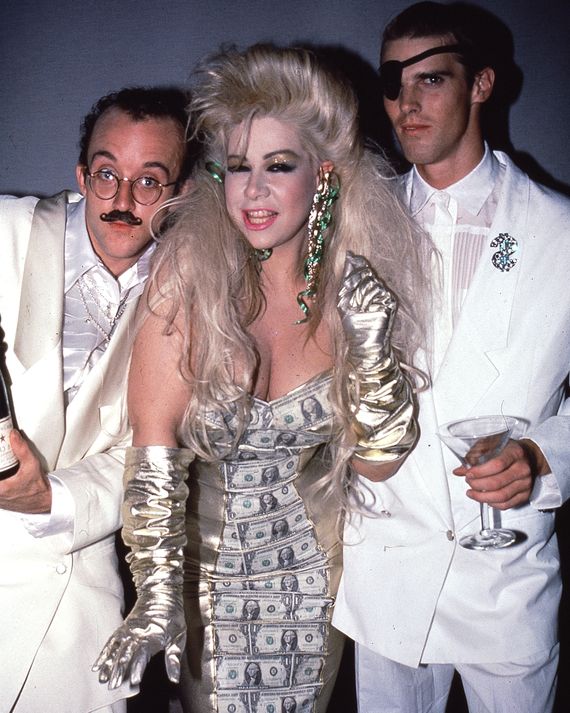In January, the Alberta Party, a centrist provincial party, posted a video on its official Instagram account. The since deleted video, which is still available on their Twitter feed, was of a man in a blue sweater facing the camera, with the Calgary skyline behind him. But something about him was off. “Does Alberta need a third political party? It depends on whether or not you’re happy with your current choices,” the man stated flatly, before suggesting Albertans seek “another option” on election day. His mouth didn’t form vowels properly. His face was strangely unmoving. And then there was his voice—it didn’t sound fully human.
That’s because it wasn’t. The video was AI generated. In a since deleted post, the Alberta Party clarified that “the face is an AI, but the words were written by a real person.” It was an unsettling episode, not unlike one from the hit techno-dystopian series Black Mirror in which a blue animated bear, Waldo, voiced by a comedian, runs as an anti-establishment candidate in a UK by-election.
“ . . . wherever the people are well informed they can be trusted with their own government,” Thomas Jefferson wrote in the winter of 1789. In other words, in a democracy, being informed grants people agency, and having agency gives us a voice. AI has the potential to challenge both of these critical assumptions embedded for hundreds of years at the heart of our understanding of democracy. What happens when the loudest, or most influential, voice in politics is one created by a computer? And what happens when that computer-made voice also looks and sounds like a human? If we’re lucky, AI-generated or AI-manipulated audio and video will cause only brief moments of isolated confusion in our political sphere. If we’re not, there’s a risk it could upend politics—and society—permanently.
Read the rest of this article at: The Walrus
Far out on the Arabian Sea one night in February, 2018, Sheikha Latifa bint Mohammed Al Maktoum, the fugitive daughter of Dubai’s ruling emir, marvelled at the stars. The voyage had been rough. Since setting out by dinghy and Jet Ski a few days before, she had been swamped by powerful waves, soaking the belongings she’d stowed in her backpack; after clambering aboard the yacht she’d secured for her escape, she’d spent days racked with nausea as it pitched on the swell. But tonight the sea was calmer, and she felt the stirring of an unfamiliar sensation. She was free.
Latifa was thirty-two and petite, with a loose ponytail and intense dark eyes. Beside her was her friend Tiina Jauhiainen, a Finnish martial-arts instructor who had helped prepare for her escape. The night was cool, and the women were huddled in hoodies, but Latifa urged her friend to sleep on deck with her. Jauhiainen was tired, and promised they could do it another time: from now on, there would be plenty of chances to see the stars.
For more than half her life, Latifa had been devising plans to flee her father, Sheikh Mohammed bin Rashid Al Maktoum, the leader of Dubai and the Prime Minister of the United Arab Emirates. Sheikh Mohammed is an ally of Western governments, celebrated for transforming Dubai into a modern power. Publicly, he has placed gender equality at the heart of his plan to propel the U.A.E. to the top of the world economic order, vowing to “remove all the hurdles that women face.” But for his daughter Dubai was “an open air prison,” where disobedience was brutally punished.
Read the rest of this article at: The New Yorker

In 1991 an academic debate spilled out of ivory towers and into the popular imagination. That year, Serge Renaud, a celebrated and charismatic alcohol researcher at the French National Institute for Health and Medical Research—who also hailed from a winemaking family in Bordeaux—made a fateful appearance on 60 Minutes. Asked why the French had lower rates of cardiovascular disease than Americans did, even though people in both countries consumed high-fat diets, Renaud replied, without missing a beat, “The consumption of alcohol.” Renaud suspected that the so-called French paradox could be explained by the red wine at French dinner tables.
The French paradox quickly found a receptive audience. The day after the episode aired, according to an account in the food magazine the Valley Table, all U.S. airlines ran out of red wine. For the next month, red wine sales in the U.S. spiked by 44 percent. When the show was re-aired in 1992, sales spiked again, by 49 percent, and stayed elevated for years. Wine companies quickly adorned their bottles with neck tags extolling the product’s health benefits, which were backed up by the research that Renaud had been relying on when he made his off-the-cuff claim, and the dozens of studies that followed.
Read the rest of this article at: Slate
On August 22, 1985, a woman with a She-Ra mane and a latex dress appeared on Late Night With David Letterman. Letterman, still spiky in his salad days at NBC, was charmed but befuddled as he interviewed her. Unlike many of his guests that season — Johnny Cash, Teri Garr, Eddie Murphy — Dianne Brill’s qualification for the spotlight was hard to describe. True, her photograph was on the cover of that morning’s New York Post; Letterman had a copy. But still, he seemed unsure who she was. Or, as he was compelled to ask her about her front-page placement, “Why are you there?”
Letterman acknowledged that Brill was “known in New York as ‘Queen of the Night’” — what had been called, and would be called again, many times, an “It” girl. New York mints these women: famous for being out, famous for being young, famous for being fun, famous for being famous. Letterman was still confused. “Uh, Dianne, tell me about the Queen of the Night,” he said. “How do you get to be? Is this an elected position, you were appointed by the mayor, or what happens?”
Read the rest of this article at: The Cut
They’re all here waiting. Anxiously swaying on the Sabbath. Impatiently jostling for better sight lines. Blinking with the neuroses that begin to take root when the face of the messiah will never be revealed, no matter how many months of rent are sacrificed for a “Jester on Dice” Homer pendant studded with nine lab-grown diamonds and 18 karats of gold.
Zoom in (3x) on the TikTok sorority blonds with the matching jean shorts and white Chucks and “I <3 Frank Ocean” baby tees. The Cobra Kai–headbanded and Jokic-jerseyed consultants who scrawled “Frankchella” on their Jeep Wranglers before plodding east from Venice. The sensitive pilgrims with twice as many stick-and-poke lyric tattoos as their idol has albums, traveling thousands of miles for the resurrection, who crouched like sprinters at the starter’s block and stampeded to the front of the stage as soon as the Coachella gates opened at noon.
Read the rest of this article at: The Ringer








:format(webp)/cdn.vox-cdn.com/uploads/chorus_image/image/72199025/FrankCoachella_Feat_Getty_Ringer.0.jpg)